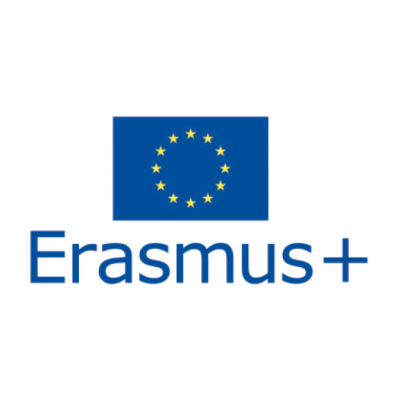
Erasmus+ Jean Monnet - Chair
Deadline: Feb 23, 2017
CALL EXPIRED
CALL EXPIRED
A Jean Monnet Chair is a teaching post with a specialisation in European Union studies for university professors.
A Jean Monnet Chair must be held by only one professor, who must provide the minimum of 90 teaching hours per academic year over a period of three consecutive years. In addition he must carry out at least one additional activity per academic year.
Teaching hours are taken to include direct contact hours in the context of group lectures, seminars, tutorials and may include any of the aforementioned in a distance learning format but do not include individual instruction and/or supervision.
Vertical Tabs
What does it support
A Jean Monnet Chair can carry out one or more of the following activities:
• Deepen teaching in European Union studies embodied in an official curriculum of a higher education institution;
• Provide in-depth teaching on European Union matters for future professionals in fields which are in increasing demand on the labour market;
Additional activities (at least one additional activity per academic year must be carried out):
• Provide teaching/lectures to students from other departments (e.g. architecture, medicine, etc.) to better prepare them for their future professional life;
• Encourage, advise and mentor the young generation of teachers and researchers in European Union studies subject areas;
• Conduct, monitor and supervise research on EU subjects, for other educational levels such as teacher training and compulsory education;
• Organise activities (conferences, seminars/webinars, workshops, etc.) targeting to policy makers at local, regional and national level as well as to civil society.
- Who can benefit from it
Direct and indirect beneficiaries of Jean Monnet activities include:
- Higher education institutions or other organisations active in the European Union subject area, and especially academics specialised in European Union studies;
- Students;
- Policy-makers and professionals;
- Civil society and the general public at large.
Timetable
Publication of the call for proposals 25 October 2016
Deadline for submission 23/02/2017 - 12:00 (CET, Brussels time)
What support is available
The maximum grant that can be awarded is 50 000 EUR for the project duration of three years. This can represent a maximum of 75% of the total eligible cost of the Jean Monnet Chair.
The specific amounts applying to Jean Monnet Chairs can be found in the section "Jean Monnet unit costs" at the end of the Jean Monnet chapter in the Programme Guide.
Who can apply
- A Higher Education Institution (HEI) established in any country of the world.
- HEIs established in Programme Countries must hold a valid Erasmus Charter for Higher Education (ECHE).
- An ECHE is not required for participating HEIs in Partner Countries.
- Individuals cannot apply directly for a grant.
How to apply
1. Read the call for proposals.
2. Read the guidelines for applicants carefully (will be available soon)
Detailed instructions are available in the Guidelines and How to apply sections of the call for proposals.
3. Register in the Participant Portal and receive a Participant Identification Code (PIC) if you do not already have one.
All organisations participating in the proposal must have a PIC number. The PIC will be requested in the application form.
4. Use the official application form. (will be available soon)
The link is provided in the How to apply section of the call for proposals.
5. Submit your application online before the specified deadline.
Make sure you have received a confirmation email.
How are applications selected
All project proposals are assessed by the Executive Agency receiving the application, exclusively on the basis of the criteria described in the ERASMUS+ Programme Guide.
The assessment implies:
- a formal check to verify that the eligibility and exclusion criteria are respected;
- a quality assessment to evaluate the extent to which the participating organisations meet the selection criteria and the project meets the award criteria. Such quality assessment is carried out with the support of independent experts.
The quality of eligible applications will be assessed on the basis of the following criteria:
- Relevance of the project;
- Quality of the project design and implementation;
- Quality of the project team;
- Impact and dissemination.
For detailed information on the quality review of applications submitted under Erasmus+, please consult the Guide for experts.
What happens if your application is selected
All applicants will receive a written notification of the outcome of the selection procedure as well as feedback on the evaluation of their application. For applications that have been selected for EU co-financing the EACEA will contact the applicants if any further action is required before the contract can be awarded.
EACEA will produce a grant agreement detailing the conditions and the level of co-funding.
For further details please refer to Part C of the Erasmus+ Programme Guide.
Contacts
For further information and assistance, please contact: eacea-ajm@ec.europa.eu
If you are based in a Programme Country and have a country-specific question on this action, you can also contact the International Erasmus+ Contact Point (ICP) in your National Agency. For the list of these offices, please click here.
If you are based in a Partner Country, you can also contact the National Erasmus+ Office (NEO) which exists in certain Partner Countries (former Tempus Partner Countries). For the list of these offices, please click here.
Public link: Only for registered users
 EC - Erasmus+
EC - Erasmus+


Please Log In to See This Section